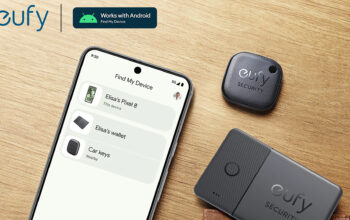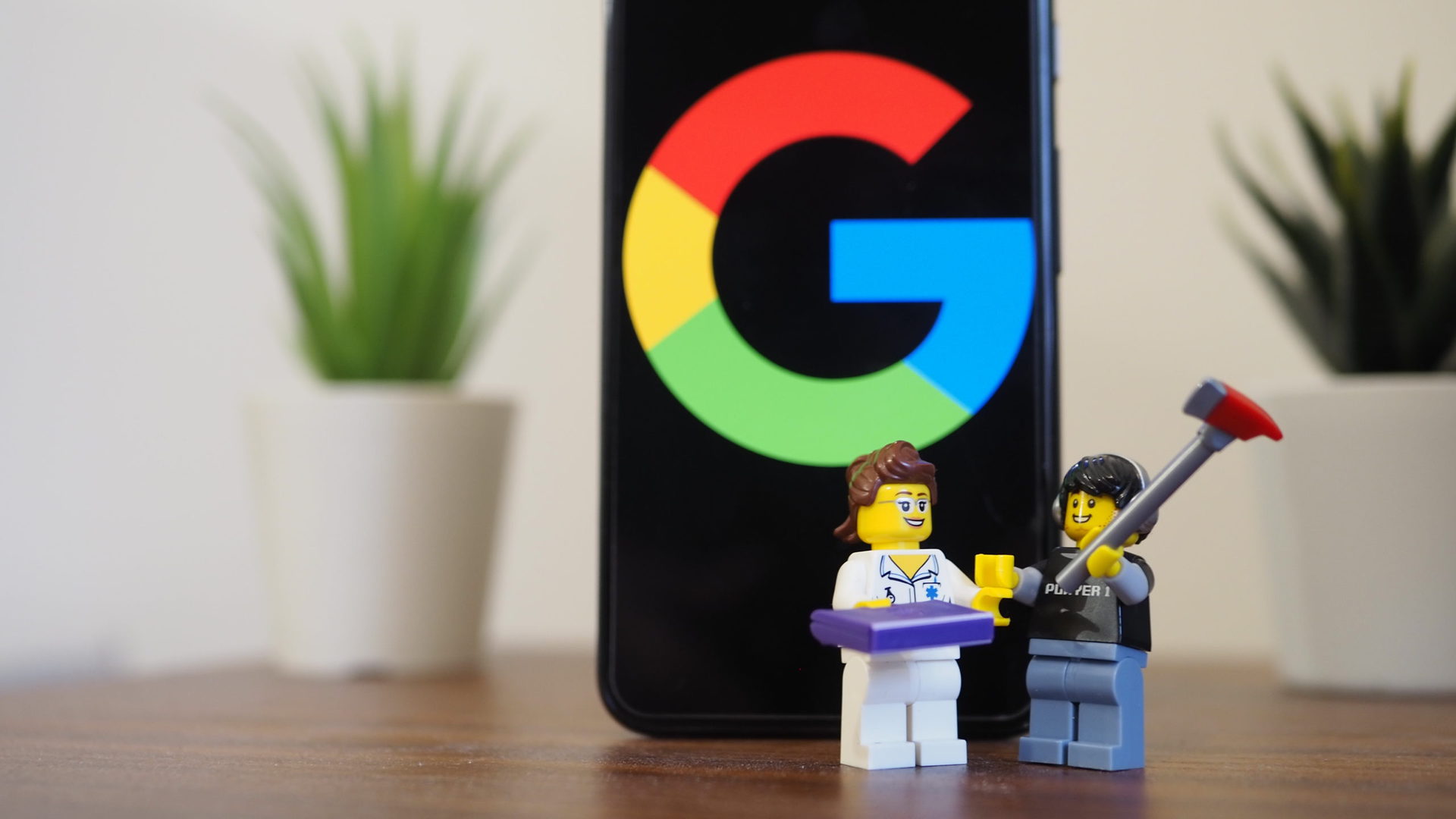
Rita El Khoury / Android Authority
A couple of decades ago, getting married or forming a long-term partnership with someone was fraught with headaches over physical and financial asset management. In our modern age, couples also have the (dis)pleasure of figuring out how to manage their common digital presence — data, media, accounts, subscriptions.
I met my now-husband in 2015 and, as our relationship evolved, our shared digital presence also went through three distinct stages. We’re now comfortably nestled in the joint Google account stage, and we find it works very well for us. At this point, this is the best recommendation I can give to people in long-term relationships. It’s a hassle-free solution to the problem of online sharing.
Before we get further, though, I should clarify that this is in addition to our personal accounts, not as a replacement for them. We still maintain our independence and privacy for many aspects of our lives.
Stage 1: Shared bits and pieces
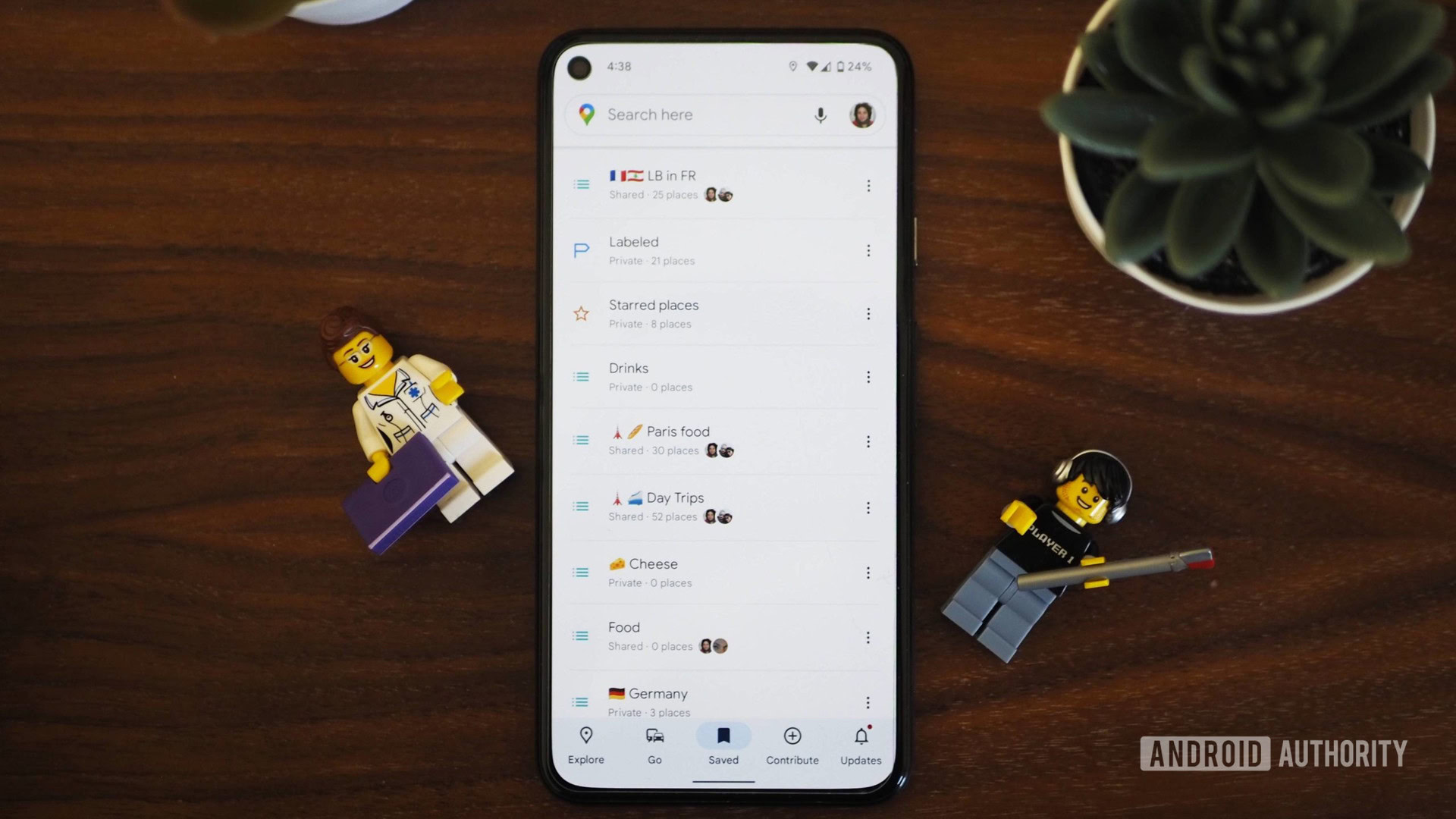
Rita El Khoury / Android Authority
Private and shared Maps lists
After the first tentative weeks, and once we realized we were in it for the long haul, my husband and I started sharing some random items. A Google Photos album here and there, a shared Google Keep list of movies we wanted to watch, a Dropbox folder for some concert tickets and random files, a shared calendar for all of our common tasks and outings, a few common Maps lists for places we wanted to visit, and so on. We even organized our apartment hunt, wedding, and financials using shared Google Sheets.
When sharing individual files and notes, our couple’s digital life felt like a puzzle of interspersed pieces that we’d glued together.
This worked for us for several years. We had to keep track of what was shared and where. More importantly, though, we had to remain aware of what was shared and what was private — a surprise or two were very nearly ruined. We also had to manually give access to every common note, document, album. If a service we both needed didn’t allow sharing, we would look for alternatives.
After a while, though, our couple’s digital life was basically a puzzle of interspersed pieces that we’d somehow glued together. Once we got married and bought an apartment, things escalated with bills, loans, and even the smallest bits like the plumber’s phone number. It was working, but it was tiresome.
Read more: How to share a Google Calendar
Stage 2: Google Family accounts
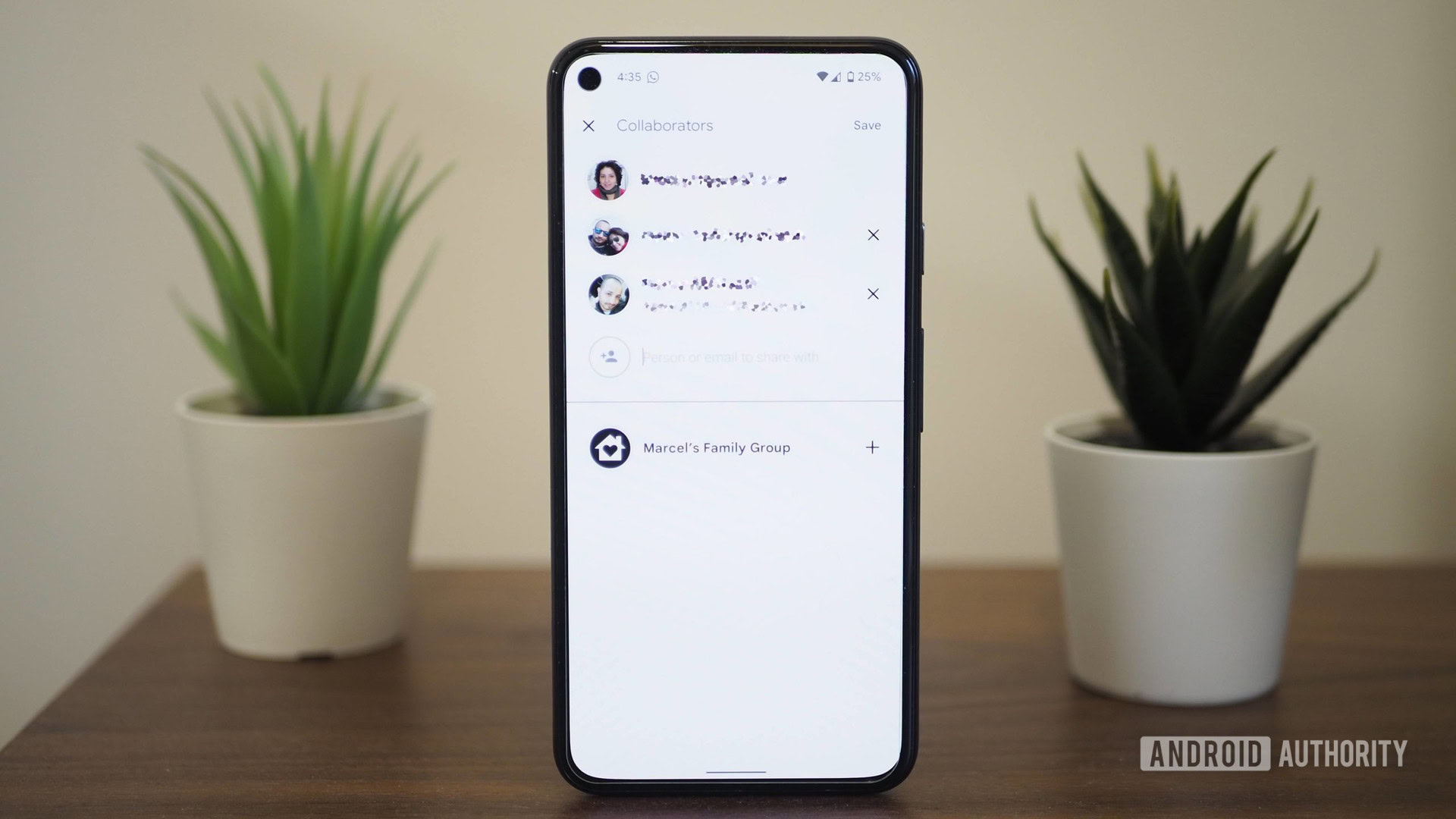
Rita El Khoury / Android Authority
Family account in Google Keep
When Google Family Link rolled out in Lebanon, we were both quite excited about it. We thought it would solve most of our issues. It ended up helping, but not a lot.
By adding both of our personal accounts to the same family on Google, we could share a YouTube Premium subscription and save a few bucks per month. I also shared my extensive Google Play purchase library, so my husband didn’t need to buy some apps/games or use the ad-supported version anymore. We switched to a single payment method too.
Google Family accounts helped a bit, but they didn’t provide all the sharing capabilities we wanted.
A few other perks include a preset family calendar, easier sharing in Keep, and proper integration with Google Assistant. Trust me, saying ‘husband’ is ten times easier than forcing myself to pronounce “Marcel” with an American accent instead of the half-French half-Arabic way I use natively.
Google stops its sharing capabilities there, though. No common address book, no shared bookmark folder in Chrome, no common inbox, no easier family sharing in Drive or Maps. And that’s when we started feeling the need for a joint Google account.
Other solutions: Best couples apps on Android
Stage 3: The joint Google account
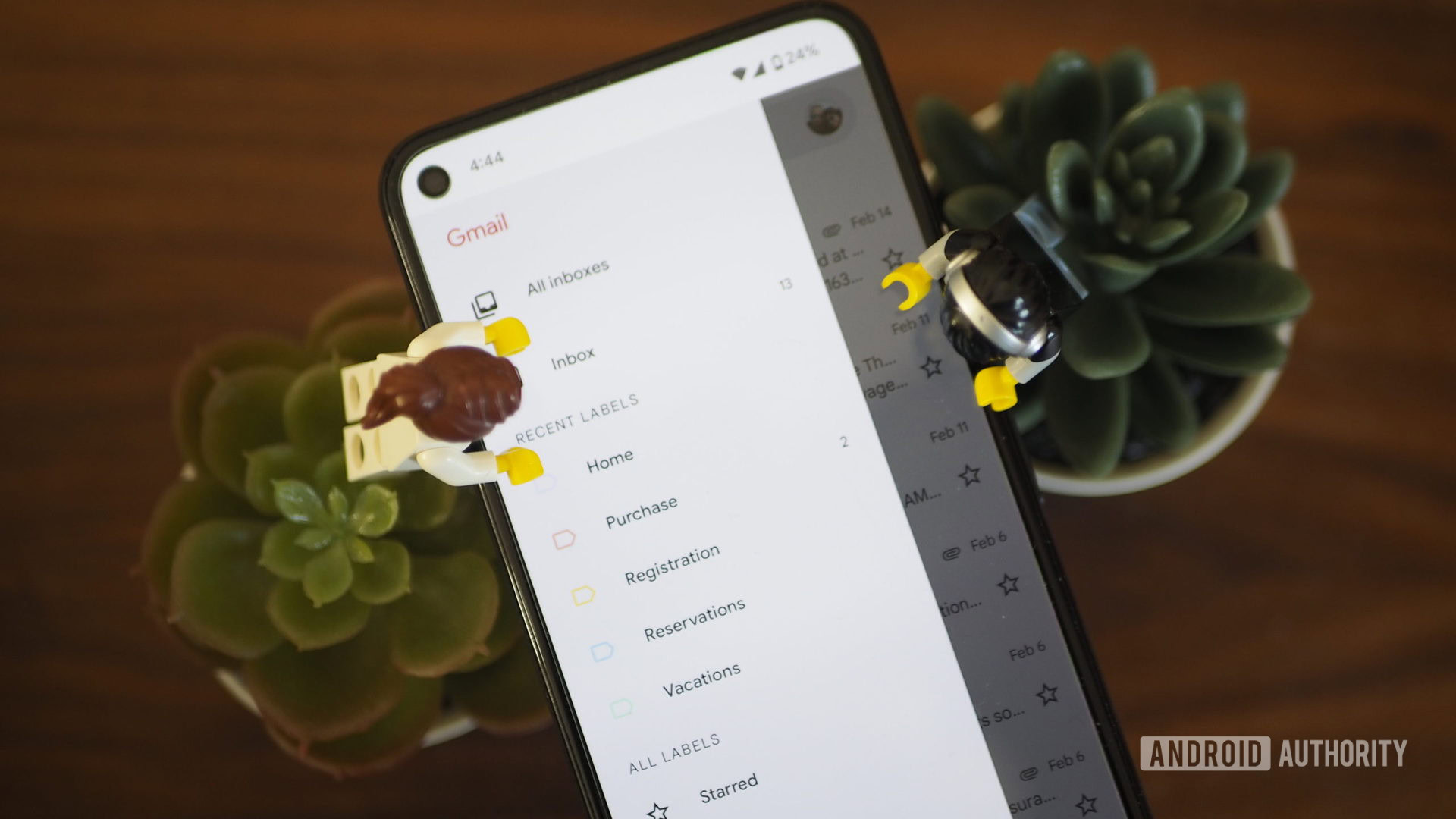
Rita El Khoury / Android Authority
One Gmail inbox for everything we need
We finally bit the bullet and created a joint account when we moved to France. The prospect of signing up for a gazillion new services and websites seemed a lot more appealing with one ID. No more having to figure out what we can share and how with every service; now everything is accessible to both of us. Every. Little. Thing.
Bills? One email ID, and they land in an inbox we both check. Purchases? Same thing. Subscriptions? Yup, same. Everything from HelloFresh and TicketMaster to our boiler maintenance contract and smart home devices is managed with this account. It also has all of our common Google Drive files, Keep notes, Maps bookmarks, Calendar events, and Contact details.
We don’t have to ping each other in the middle of the day for a password, document, or number. We know where to look and find it, even if it’s the other person who added it. And we don’t need to spend hours figuring out how to share something, or if a service allows sharing in the first place. Or worse, how much sharing it allows. That used to be a huge headache with smart home devices.
Everything from HelloFresh and TicketMaster to our boiler maintenance contract and smart home devices is managed with this account.
We absolutely love that we can have a joint Chrome profile where we’ve accumulated all of our shared bookmarks. Trip planning, apartment hunting, random shopping, it’s all easier. When we had to rent our first apartment, I bookmarked several real estate sites with the exact filters we wanted (location, surface, number of rooms, price), so whenever either of us had a bit of free time, they could check new listings.
Chrome also has our common logins, address, payment method, search engines, and history. It doesn’t matter who’s free to pay a bill, buy groceries, get a theatre ticket, or plan a trip. We can both do it together, or one of us can take the lead when the other is busy or tired.
It’s a hundred small things like that that make the experience better with a joint account, and one of the reasons I recommend taking the leap whenever you feel your relationship is ready for it.
See also: How to sync your Chrome bookmarks to your phone
Things to keep in mind before making the move
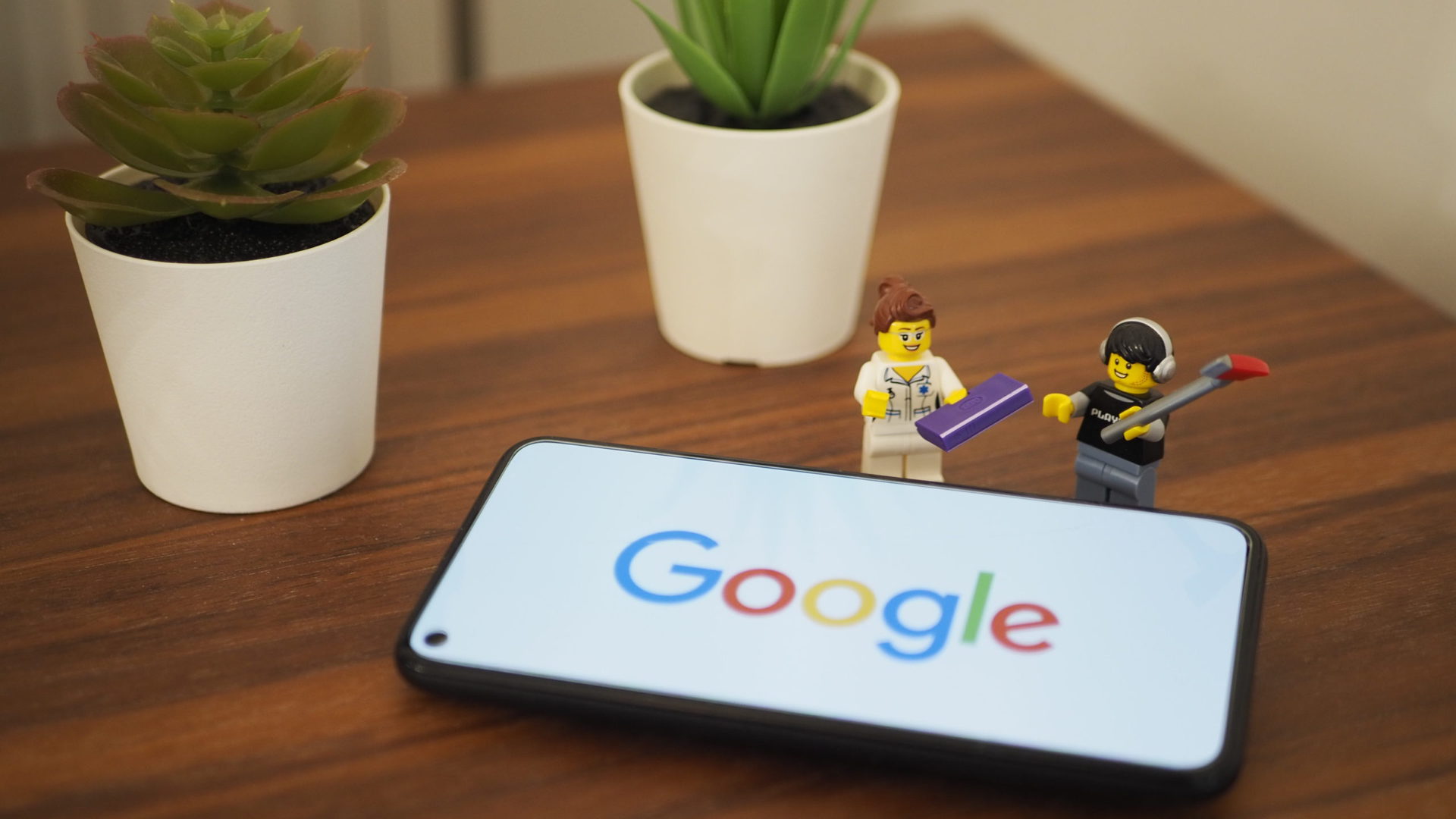
Rita El Khoury / Android Authority
A joint Google account may not be the solution for every couple out there. It makes a lot of things easier, sure, but disentangling it can be a complicated mess. If you decide to separate, who gets ‘custody’ of the account? Who keeps the digital purchases and paid subscriptions linked to it? You’d also have to move the necessary data back to your personal accounts and rebuild some of your history across services. Suppose you were using it for hotel bookings and had reached a certain privilege status, what do you do with that? All of these are questions you should ask yourself and your partner before taking the plunge.
Not all couples will benefit from a joint account either. My husband and I are both what you’d call ‘techies,’ and we’re both equally involved and interested in all the aspects of our life together. If you have divided shopping, bills, paperwork, and planning between the two of you, and you each don’t care about the others’ responsibilities, then sticking with a few shared items here and there might be more than enough.
But if you find yourself in a situation similar to ours and you’ve grown tired of figuring out how to share every little bit with your significant other, then a joint account is the way to go. It is infinitely simpler.
For the couples out there, which stage of account sharing are you at?
33 votes


